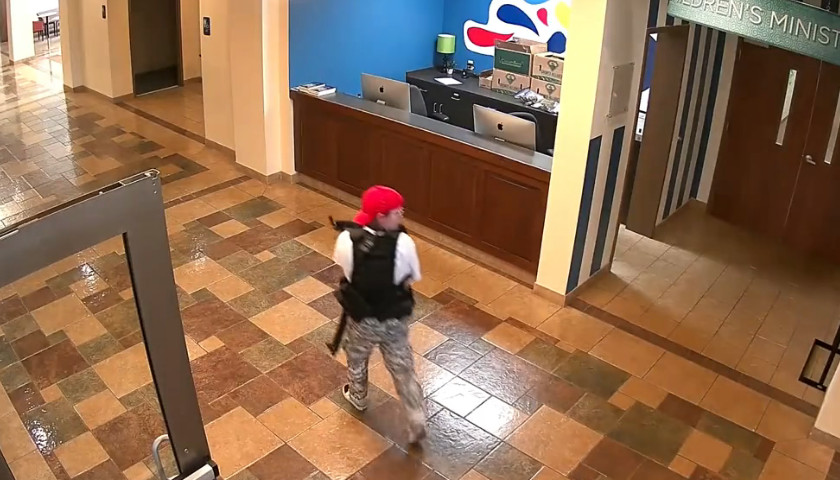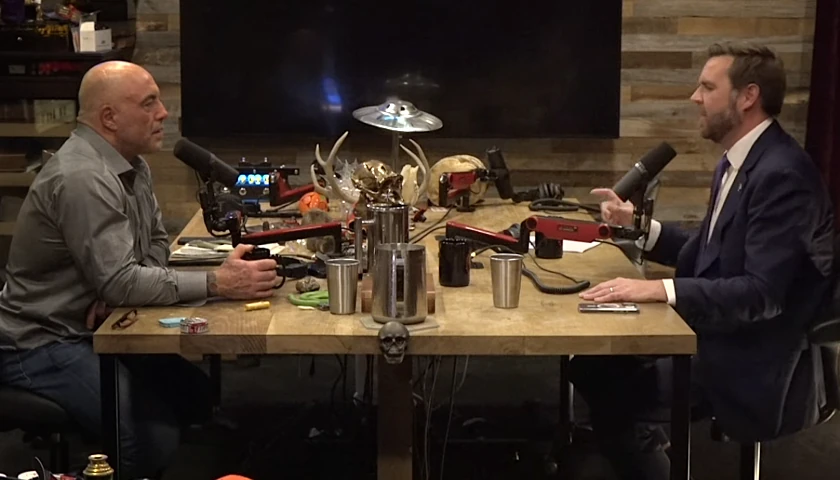In the days following the horrifying shootings at Nashville’s Covenant Presbyterian School, police said the killer, Audrey Elizabeth Hale, acted “totally alone.”
Hale, a 28-year-old woman who identified as a transgender man named “Aiden,” was killed by police 14 minutes after her deadly rampage began. Before she was neutralized, Hale had taken the lives of three 9-year-olds and three staff members at the private Christian school she once attended as a child.
But now that several organizations — including The Tennessee Star — have filed a lawsuit demanding the Metropolitan Nashville Police Department (MNPD) release Hale’s manifesto and related documents, law enforcement officials suddenly claim they are keeping the investigation open because it may lead to the discovery of “additional crimes.”
That’s at least the reason Metro Nashville government attorneys are using in trying to stop the court-ordered delivery of the records. They claim that the premature release of Hale’s manifesto could cause “harmful and irreversible consequences.”
Deborah Fisher, executive director of the Tennessee Coalition of Open Government, is all to familiar with the argument.
“I have seen journalists face this before when police say they’re not charging anybody but the case is still open,” she told The Tennessee Star. “Our argument is, you can’t have it both ways.”
In denying multiple public records request from The Tennessee Star, The Tennessean, the Tennessee Firearms Association and others, the MNPD cited Rule 16 of the Tennessee Rules of Criminal Procedure and Tennessean v. Metro. Gov’t of Nashville, 485 S.W.3d 857 (Tenn. 2016). The claim is that “state, federal, or other applicable law prohibits” disclosure of the records of an ongoing or underlying criminal proceeding. As the plaintiffs have argued in filing their lawsuits, there appears to be no such proceeding.
“The Metro Police Department acknowledges that it believes Hale acted alone. Petitioners submit that there is no pending criminal investigation. There is no criminal suspect to investigate,” The Tennessean lawsuit states.
That’s what the lawsuit is ultimately all about, that MNPD cannot keep the manifesto and related documents locked up if there is no ongoing or pending investigation.
But weeks after police suggested as much, they seemed to change their tune, declaring in court files that there is indeed an “active” investigation into the shootings, and that it could take 12 months to complete.
In his sworn declaration, Lt. Brent Gibson says he’s been overseeing the investigation, which is being conducted by a “fluctuating number of MNPD officers.”
And suddenly, there’s talk of co-conspirators.
“If there is a co-conspirator out there, aren’t we nervous about that? If there is, I would think there would be a sense of urgency to find that person,” Fisher said. But there’s been no such concern reported to a public unnerved by a very dark crime.
Davidson County Chancellor I’Ashea Myles this week ruled that the Covenant Presbyterian Church, the school and families of the children at the school can intervene in the case. They don’t want Hale’s manifesto released. Ever.
Forging some new legal territory in an emotionally charged case, Myles wrote in her order that she was “stirred by the reasons” expressed by the intervenors for wanting to protect their interests in the case. Attorneys for the parents, school church say they are worried about “copycat crimes” and the safety of their children should the documents be released.
“[N}o one was more traumatized, or has suffered more, than the families of the victims and survivors of the Covenant School atrocity. No one,” the motion to intervene asserts. “And no one can claim a remotely similar interest in whether the writings of the shooter be released.”
Fisher agrees that the parents and the other intervenors do have have a compelling interest, and she’s sympathetic to those interests. But so does the public, and so do the news outlets that are trying to inform the public, and the lawmakers and activists concerned with public policy.
The parents argue that they are victims of the shooting, and as victims they are entitled to certain rights under the Tennessee constitution. Included among those, they argue, is the right to keep distressing and “harmful” things out of the public eye.
Free press experts say that’s a slippery slope.
Fisher said such an argument could be applied to every case.
“It would make police hesitant to release anything,” the open government expert said. “What about when an officer claims to be a victim because the person he shot and killed attacked him first?”
And who decides? Attorneys for the school claim an “overwhelming percentage of parents” are opposed to making the documents public. What about the parents who do want the Hale records released? They’re victims, too, according to the intervenors arguments. Do they not get a say?
“If we in our criminal justice system say a victim or a relative of a victim decides what the public should know about the crime, they have the final word and that would dramatically change what information the police could give on a crime,” Fisher said. “It would no longer be their decision; it would be the victim’s decision.”
As for the argument that releasing the Hale manifesto could create copycats and endanger safety, Fisher argues that MNPD quickly released surveillance video of Hale shooting her way into the school and walking around the property heavily armed before she began her deadly errand.
“You can make the argument about the possibility of a copycat crime there,” she said.
So what makes the manifesto and Hales other writings so dangerous? We don’t know. The records haven’t been released.
In its legal arguments for intervention, Metro Nashville did not cite the exemptions under the victims protections outlined in the state constitution. Attorneys for the plaintiffs argue those protections do not apply to the release of the Hale records.
“If the victims rights in the constitution is an exemption, why didn’t [Metro Nashville] claim it? I don’t know why they didn’t list it,” Fisher said. “One could conclude they don’t think it’s an exemption.”
In allowing the parents to intervene in the lawsuit based on their arguments, Myles has arguably gone where Tennessee law does not go: Affording legal standing to crime victims and their families.
Myles has set a show cause hearing for June 8 in which Metro Nashville will have to justify why it wants to keep the records from the public eye.
While the judge weighs the potential “harmful and irreversible consequences” of releasing the Covenant killer’s manifesto, open government experts say Myles must also consider the harm and “irreversible consequences” of keeping public documents in the dark.
– – –
M.D. Kittle is the National Political Editor for The Star News Network.
Image “Covenant Shooter Hale” by Metro Nashville Police Department.









As much as the public would like to know, I can foresee a danger, lest in revealing the ‘manifesto.’ the thr transgender crowd be inspired to further violence. Once you see some awful, hideous thing, you cannot then UNsee it. Case in point: the world could SEE an electronic record of the death of George Floyd and be inspired to brutality without direct knowledge of what actually killed him.
I wonder how much of the claimed ‘right to know’ is based more on morbid curiosity as opposed to really having a need to know. IOW, is there really any valid reason to know all of the sordid details?
“… law enforcement officials suddenly claim they are keeping the investigation open because it may lead to the discovery of “additional crimes.” What a bunch of BS. They know the release of the manifesto will completely destroy the transgender movement. This is another example of how corrupt our governments have become.
Honor Both OK esp screw the killers rights